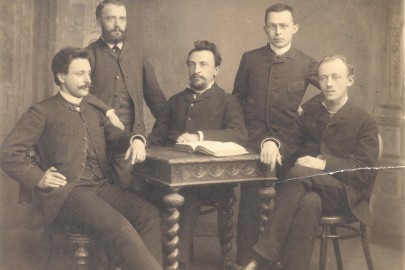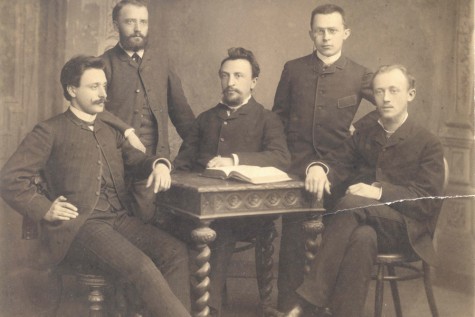Technische Hochschule Darmstadt spotted this gap immediately and established the world's first professorship for Electrical Engineering. It filled the position with a man who knew how to inspire enthusiasm for the subject: Franconian Physicist Erasmus Kittler. The 30-year-old had just masterminded Germany's first Exhibition for Electrical Engineering in Munich. The clean electrical machines fascinated audiences accustomed to smoking, sooty steam engines. In his Darmstadt lectures, Kittler also relied on the power of visualisation, turning the lecture hall into a stage full of experiments, laden with coils, electric engines and instruments.
The Dawn of Something Great
Kittler's astute amalgamation of theory and practice in teaching saved the Darmstadt Institute of Technology from shutting down after a period during which enrolment was in the doldrums. Under Kittler, it blossomed into a veritable mill churning out electrical engineers, one of Europe's leading schools, with enrolment sky-rocketing in all its departments. His teaching radiated out beyond the university and caught the attention of city officials, who were looking to replace the gas lighting in Darmstadt’s famous theatre with a safer alternative. A few years earlier, a faulty gas light had razed it to the ground.
Kittler convinced the political leaders to build a power plant and an electrical grid for the entire city. The Siemens corporation erected one of Germany's first power plants right in the heart of Darmstadt, the so-called “Centralstation”, which started generating electricity in 1888. Students now had an excellent opportunity for practical applications right on the doorstep.
Excellent Reputation thanks to Erasmus Kittler
Kittler travelled the country as an electrification consultant. The son of a tailor used the contacts he made to place his students in leading positions in the fledgling electrical industry. One of his assistants, Michail von Dolivo-Dobrowolsky, ended up as chief constructor at the Allgemeine Elektricitäts-Gesellschaft (AEG) where he invented the three-phase motor. Another Kittler-student, Waldemar Petersen, later became Director General of AEG.
Since Kittler’s time, Technische Universität Darmstadt has enjoyed an excellent international reputation. It is the home of the electrical engineer – and has since added many more credits to its name.




